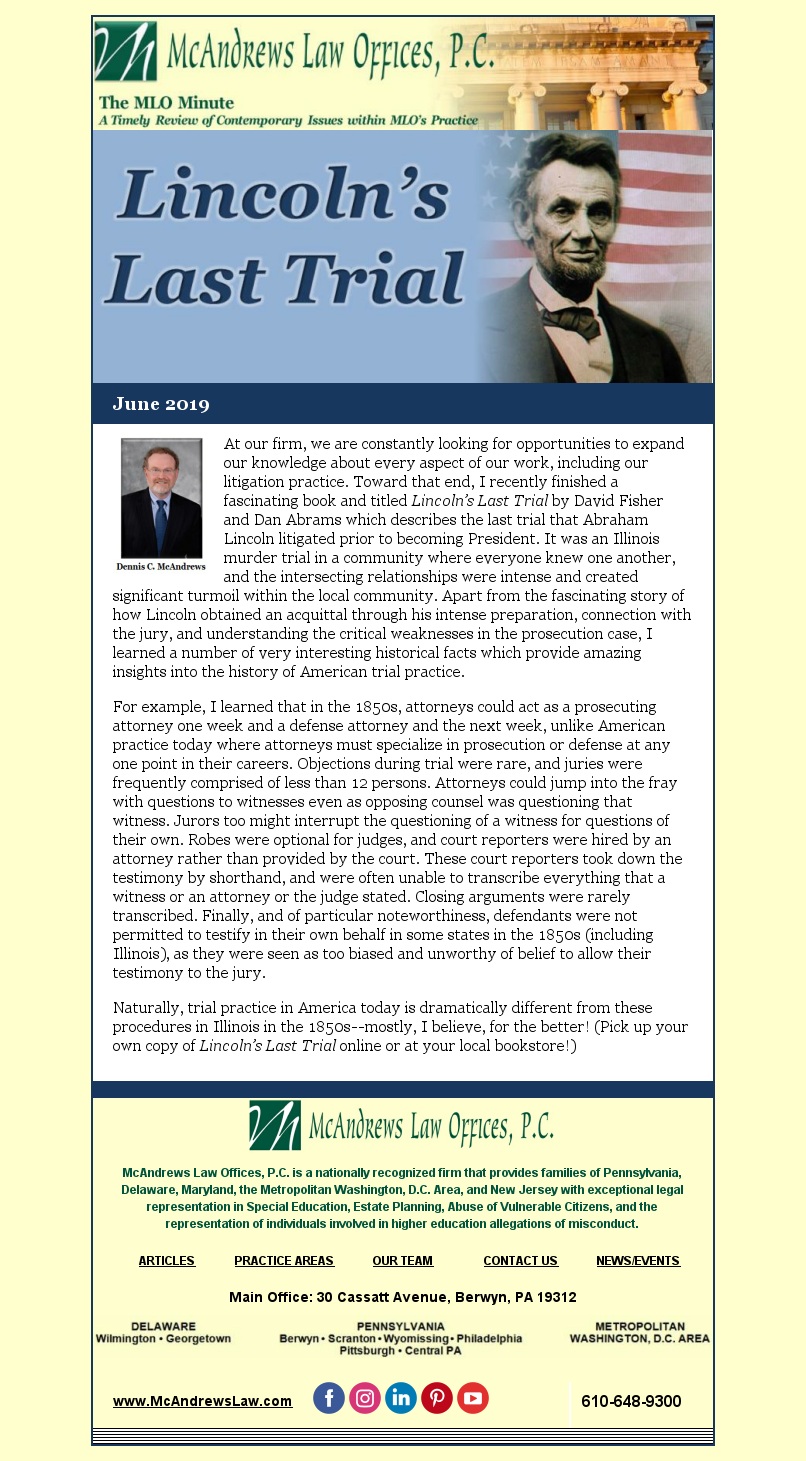June 2019
The MLO Minute, By Dennis McAndrews, Esq.
At our firm, we are constantly looking for opportunities to expand our knowledge about every aspect of our work, including our litigation practice. Toward that end, I recently finished a fascinating book and titled Lincoln’s Last Trial by David Fisher and Dan Abrams which describes the last trial that Abraham Lincoln litigated prior to becoming President. It was an Illinois murder trial in a community where everyone knew one another, and the intersecting relationships were intense and created significant turmoil within the local community. Apart from the fascinating story of how Lincoln obtained an acquittal through his intense preparation, connection with the jury, and understanding the critical weaknesses in the prosecution case, I learned a number of very interesting historical facts which provide amazing insights into the history of American trial practice.
For example, I learned that in the 1850s, attorneys could act as a prosecuting attorney one week and a defense attorney and the next week, unlike American practice today where attorneys must specialize in prosecution or defense at any one point in their careers. Objections during trial were rare, and juries were frequently comprised of less than 12 persons. Attorneys could jump into the fray with questions to witnesses even as opposing counsel was questioning that witness. Jurors too might interrupt the questioning of a witness for questions of their own. Robes were optional for judges, and court reporters were hired by an attorney rather than provided by the court. These court reporters took down the testimony by shorthand, and were often unable to transcribe everything that a witness or an attorney or the judge stated. Closing arguments were rarely transcribed. Finally, and of particular noteworthiness, defendants were not permitted to testify in their own behalf in some states in the 1850s (including Illinois), as they were seen as too biased and unworthy of belief to allow their testimony to the jury.
Naturally, trial practice in America today is dramatically different from these procedures in Illinois in the 1850s–mostly, I believe, for the better! (Pick up your own copy of Lincoln’s Last Trial online or at your local bookstore!)





